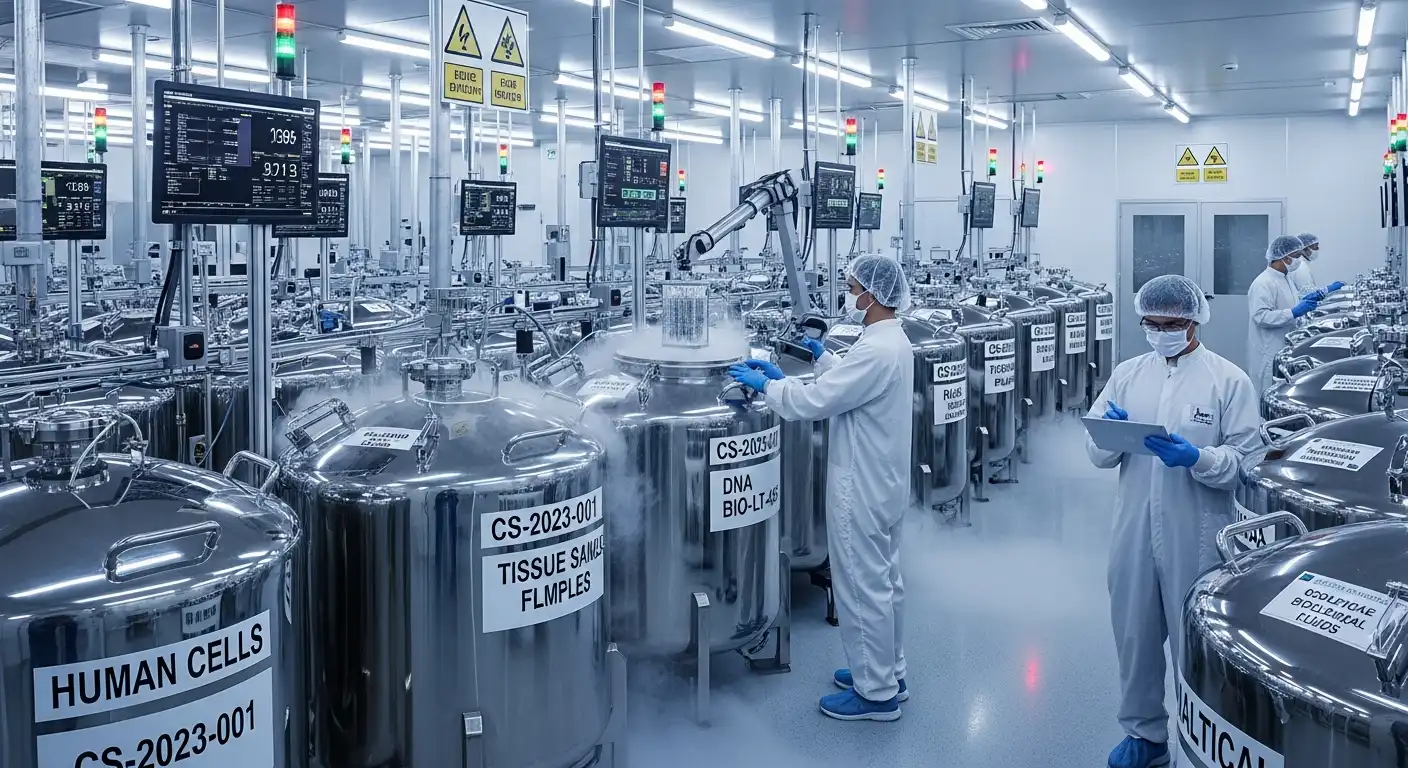Key Points:
- Recent advancements in cryogenic storage technology have enabled the enhanced preservation of biological samples, offering improved reliability and integrity.
- Advanced cryopreservation systems offer precision temperature control, automated monitoring, and environmentally friendly refrigeration methods.
- Breakthroughs in cryoprotectant solutions and vitrification techniques minimize sample damage and improve post-thaw viability.
- Eco-conscious cryogenic refrigeration systems reduce energy consumption and environmental impact while maintaining performance.
In a significant leap forward for biomedical research, scientists have made groundbreaking advancements in cryogenic storage technology, revolutionizing the preservation of biological samples and expanding the possibilities for medical discoveries. Cryogenic storage, which involves storing materials at extremely low temperatures, typically below -150°C, is crucial for preserving biological specimens, such as cells, tissues, and DNA, for long-term storage and research purposes.
Sample degradation, inconsistent temperature control, and high energy consumption have limited the effectiveness of traditional cryogenic storage methods. However, recent innovations have overcome these obstacles, ushering in a new era of cryogenic storage technology that promises enhanced sample integrity, improved reliability, and reduced environmental impact.
One of the most significant developments in cryogenic storage technology is the emergence of advanced cryopreservation systems equipped with precision temperature control and automated monitoring capabilities. These state-of-the-art systems utilize cutting-edge insulation materials and refrigeration techniques to maintain ultra-low temperatures with unprecedented stability and uniformity, ensuring the integrity of stored samples over extended periods.
Furthermore, breakthroughs in cryoprotectant solutions and vitrification techniques have enabled researchers to preserve delicate biological materials more effectively, minimizing damage from ice crystal formation and improving post-thaw viability. By optimizing cryopreservation protocols, scientists can now store a wider range of biological samples, including stem cells, organoids, and rare tissue specimens, with greater success rates and minimal loss of functionality.
Another key advancement in cryogenic storage technology is the development of eco-friendly cryogenic refrigeration systems that utilize sustainable cooling methods and alternative refrigerants to reduce energy consumption and environmental impact. By harnessing renewable energy sources and implementing energy-efficient designs, these eco-conscious storage solutions offer a greener approach to long-term sample preservation without compromising performance or reliability.
Integrating smart monitoring and remote management capabilities enables researchers to monitor cryogenic storage conditions in real-time, receive alerts for temperature deviations, and remotely adjust settings from anywhere in the world.
Overall, the latest innovations in cryogenic storage technology represent a significant milestone in biomedical research, empowering scientists to preserve and study biological specimens with unprecedented precision, efficiency, and sustainability. As cryogenic storage technology continues to evolve, it holds immense promise for accelerating discoveries in regenerative medicine, personalized healthcare, and disease research, ultimately advancing our understanding of life’s complexities and unlocking new avenues for medical innovation.





